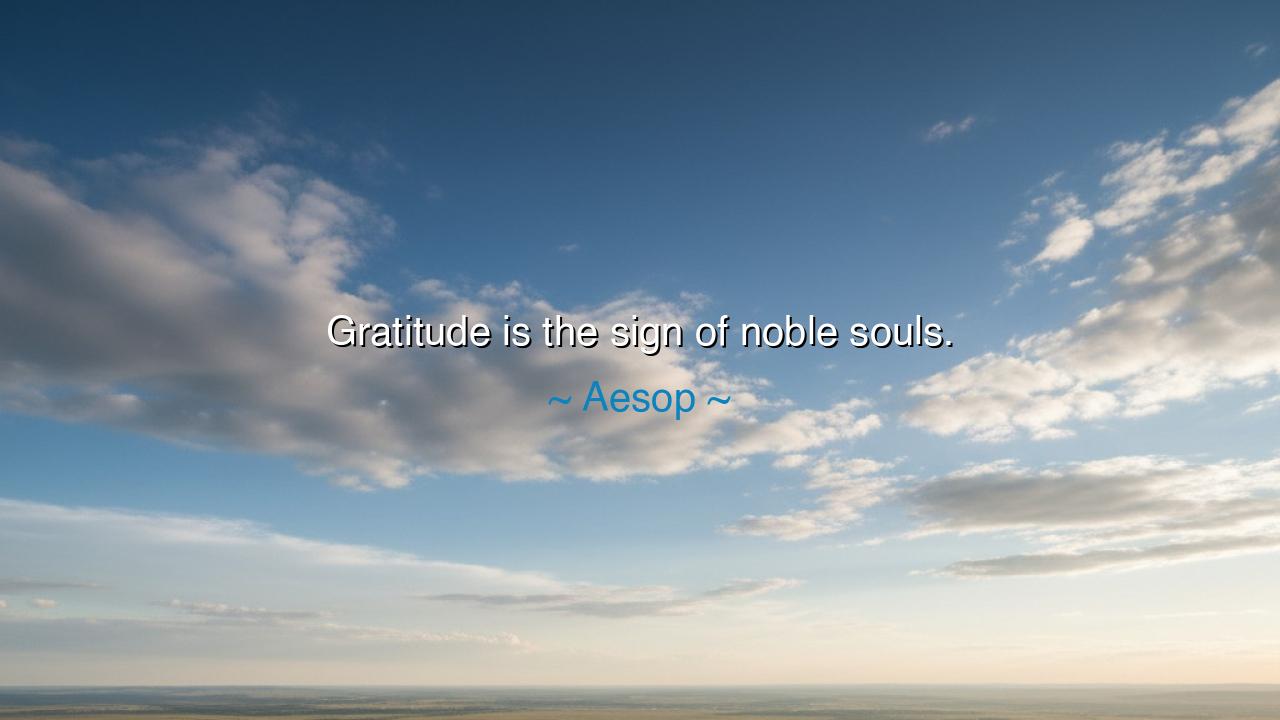
Gratitude is the sign of noble souls.






Aesop, the ancient teller of fables, wrapped eternal truths in simple stories, and from his wisdom comes this shining maxim: “Gratitude is the sign of noble souls.” In this short phrase lies the measure of true greatness. Nobility is not found in titles, crowns, or wealth, but in the ability of the heart to remember kindness, to honor benefactors, and to give thanks with humility. The one who is grateful proves himself not small or selfish, but elevated in spirit, capable of recognizing that life is not lived alone.
To call gratitude the mark of a noble soul is to say that thanksgiving is no mere courtesy, but the fragrance of character. The ungrateful man consumes blessings as though they were his right, never pausing to honor the giver. He is enslaved by pride, blind to the labor and sacrifice of others. But the grateful man remembers. He acknowledges that every gift—whether food, friendship, wisdom, or life itself—is undeserved grace. This remembrance makes him noble, for it lifts him above selfishness and hardens him against bitterness.
The fables of Aesop often teach this very truth. In The Lion and the Mouse, the mighty lion spares a small mouse, who later repays the favor by gnawing through the hunter’s net and setting the lion free. The lesson is clear: even the smallest kindness deserves gratitude, and even the greatest are humbled when they honor those who help them. The lion’s willingness to recognize the mouse’s aid is not weakness, but nobility. He becomes greater by being grateful.
History too shines with examples. Consider Cyrus the Great of Persia. Unlike many conquerors, he treated defeated peoples with mercy and respect. When others aided him or showed loyalty, he repaid them with honor and thanks. His gratitude won him not only subjects, but allies, and he was remembered not merely as powerful, but as noble. Contrast this with kings who demanded thanks but never gave it; their reigns ended in resentment and ruin. Gratitude, freely given, builds bonds stronger than fear.
The ancients recognized that nobility was measured not by blood but by virtue. A soul that cannot be grateful is base, no matter his crown. But the lowliest peasant, if he remembers kindness and honors it, lives as nobly as the greatest emperor. Gratitude is the language of the heart that knows its dependence on others, and it is this humility that raises man to true greatness.
The lesson for us is clear: let gratitude mark your life. Do not consume blessings in silence. Remember those who have lifted you—parents, teachers, friends, even strangers who gave small mercies along the way. Give thanks often, not only in words but in deeds, by returning kindness with kindness, and by showing others the same grace you once received. In this way, your soul will be shaped into nobility, even if the world never places a crown upon your head.
Practically, begin with daily remembrance. Each night, recall at least one gift you received that day, and give thanks for it. Speak your gratitude aloud to those who bless you. And when you are tempted to pride, remember Aesop’s teaching: gratitude is not a weakness, but the sign of a noble soul. For only the noble can bow their hearts in thanksgiving, and in bowing, they rise higher than all.
Thus, Aesop’s wisdom endures: titles fade, riches vanish, power crumbles—but the soul marked by gratitude is truly noble, and its memory outlives the ages.






AAdministratorAdministrator
Welcome, honored guests. Please leave a comment, we will respond soon